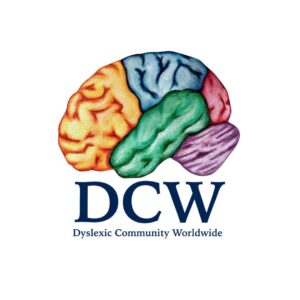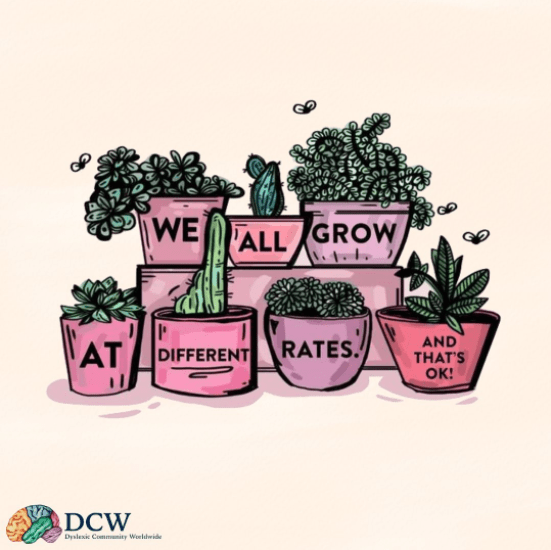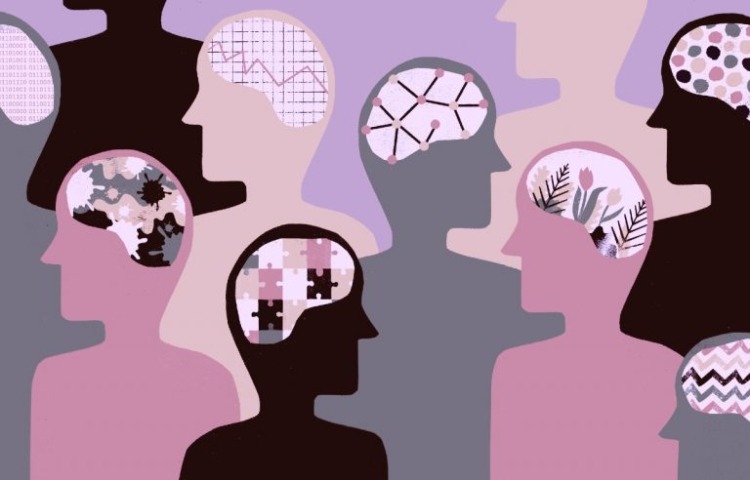Albert Einstein, Robin Williams, Will Smith and Pablo Picasso, did you know that all these successful figures were diagnosed with dyslexia, a learning disability? dyslexia is a learning disability that causes difficulties in reading, writing and text comprehension. Despite these difficulties, dyslexic individuals have great potential and with proper support, they can achieve greatness. Needless to say that there is still a long way to go when it comes to the awareness level in the Middle East.
Sarah Sedky is the founder of Dyslexic Community Worldwide, an Egyptian platform advocating for dyslexia. She is dedicated to increasing awareness and representation for dyslexics in the region. We spoke to Sedky about her experience and she shared with us her views on dyslexia in the Arab world.

What is dyslexia? Is it as complicated as it sounds?
Dyslexia is a learning difficulty that some people struggle with on a daily basis. It causes difficulty with reading, writing, listening, speaking, processing information and memorizing. Dyslexia is a strong word when you hear it for the first time, but it truly isn’t complicated. It simply means difficulty in words and languages. The best way to tackle these difficulties is by facing them and working on them.
Tell us more about your platform. What was the inspiration behind it? Is there a personal story?
I launched Dyslexic Community Worldwide after graduating from university. I always knew I wanted to do something in Egypt related to dyslexia, to help students the same way I hoped someone would’ve helped me when I was younger. I found out about my dyslexia at a very young age and was very lucky to be able to get the support I needed when I moved to Dubai.
What are some of the challenges you personally faced as a dyslexic?
I’m half Dutch and half Egyptian and I speak three languages fluently: (Dutch, Arabic and English). I was nine years old when I moved to Dubai and the Learning Difficulty department at the school took me in as a case study due to speaking three languages as a dyslexic. Coping with one language as a dyslexic could already be a challenge, so knowing three languages at that age was something interesting for the department. Therefore, the Learning Difficulty department decided to take me in as a case study, and my support teacher even included me as a case in her thesis. Dyslexia can be challenging for someone who speaks one language but I managed to overcome it while speaking three languages.

What do you think of the current awareness level in the Middle East when it comes to dyslexia?
I think we’re starting to be more open about the possibility that there is such a thing as learning difficulties. However, I believe that we still have a long way to go in terms of the resources and the knowledge about it. We also need to focus a lot more on the educators that are teaching our students. Until today, there is still a lack of understanding regarding how to communicate and educate a student with dyslexia.
What are some of the common misconceptions and myths surrounding dyslexia and how would you debunk them?
There are so many out there, but the ones I get asked a lot are “Does dyslexia affect your IQ?” and “how can you outgrow or cure it?” I do my best to correct these misconceptions by answering and explaining with facts through my platform.
What role do parents and schools play when it comes to supporting someone with dyslexia?
They play the two most important roles in a student’s life. Parents should be the support system that the student needs, they need to be understanding and present for them. The school needs to provide the right learning accommodations and a safe environment for the student. They also have to make sure that all the teachers are aware of their case and their preferred way of learning.
Do you think there is a certain level of resistance from parents, schools, community when a child or even an adult is being diagnosed with dyslexia?
Here, I believe there is a stigma that if an individual is known to have any kind of learning difficulty then they will never be as bright, or successful as someone who doesn’t.
What is your opinion of centers in the region that assist those with dyslexia?
The centers I attended were limited in resources, It would be great to see more funding for centers helping dyslexics in the region. Fortunately, I received the support I needed at school in the UAE. In three years they helped me overcome my reading, writing, speaking and processing information struggles. Until today, I still remember the ways in which they helped me and I am truly grateful for I would not be where I am today if it wasn’t for them.
We have recently seen a dyslexic character on a Ramadan TV show. How does that make you feel?
I believe you are referring to the TV show “Meen Aal.” I first heard about the show from a friend of mine, I binged the show in a day to get to the episode where they spoke about dyslexia. I was very pleased to see a dyslexic character. I believe that this is a great step forward and that is finally heading in the right direction and educating the community about dyslexia. I must say though, I do wish that they had portrayed dyslexia in a more positive way, because I want people to know that you should never be ashamed of who you are.

Do you think dyslexia intersects with bullying, especially in school settings? What should be done to ensure that emotional support isn’t lacking?
Unfortunately, in school when someone is labeled “different” they will always be exposed to bullying. It’s very upsetting because it causes traumas and mental health struggles from a very young age. This is where parents and the school have to get involved. The school must ensure that the student is in a safe and understanding environment, and the parents have to follow up on this.
Any words of encouragement for someone who was recently diagnosed with dyslexia or someone who thinks they might be dyslexic?
Dyslexia is a beautiful thing. It can cause struggles in some areas, however, dyslexics have unique minds and strengths that others wish they could have. This includes your creativity, imagination, and the way you solve problems and find solutions that other people have never thought of or considered. It makes you unique in the best possible way.
WE SAID THIS: We are very happy to see a community supporting dyslexics in the region!



